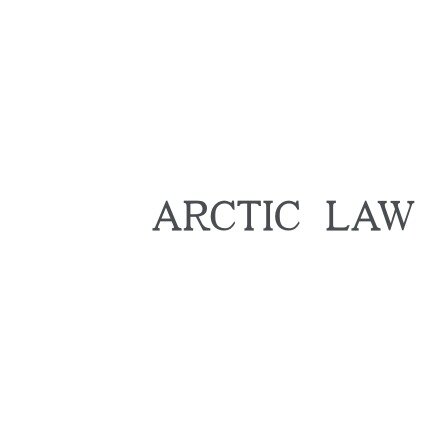Best Climate Change Law Lawyers in Greenland
Share your needs with us, get contacted by law firms.
Free. Takes 2 min.
Or refine your search by selecting a city:
List of the best lawyers in Greenland
About Climate Change Law in Greenland
Climate Change Law in Greenland is an evolving area of law designed to address the region's unique environmental challenges and opportunities. Due to its geographic location and climate, Greenland faces rapid environmental transformations, such as melting ice caps, changing ecosystems, and increased human activity (including resource exploration). Climate Change Law concerns the creation and enforcement of legislation and policies intended to mitigate climate change, promote sustainable development, and regulate activities that impact Greenland's environment. It encompasses regulations on pollutants, environmental impact assessments, renewable energy initiatives, and international cooperation, closely linked to Denmark's international obligations and the Greenland Self-Government Act.
Why You May Need a Lawyer
Climate Change Law is complex and can involve many stakeholders, including individuals, local communities, companies, and government entities. You may need a lawyer specializing in this field for several reasons:
- Dealing with environmental permits or compliance for business or exploration activities
- Understanding legal responsibilities in relation to environmental protection and climate impact
- Pursuing or defending a legal claim involving pollution, environmental harm, or breaches of environmental regulations
- Seeking guidance about renewable energy project development, including wind, hydro, or solar installations
- Engaging in international or cross-border activities linked to environmental law
- Ensuring compliance with Greenlandic and Danish law, as well as international treaties and guidelines
- Participating in public consultation or review processes about major infrastructure or resource projects
Local Laws Overview
The legal framework for climate change and environmental protection in Greenland is influenced by both local and international considerations. Key aspects include:
- The Mineral Resources Act: This law regulates geological surveys, exploration, and extraction of mineral resources, requiring environmental impact assessments and monitoring of potential threats to the climate and ecosystems.
- The Environment Protection Act for Greenland: Governs pollution, waste management, and protection of natural habitats. Strict penalties apply for violations that harm the environment or accelerate climate change.
- Fisheries and Hunting Regulations: Changing climate affects marine and terrestrial ecosystems, so management rules adapt to protect resources and biodiversity while supporting sustainable use.
- Renewable Energy Initiatives: Greenland promotes wind, hydro, and solar projects to reduce reliance on fossil fuels and lower greenhouse gas emissions, supported by laws and incentives.
- International Agreements: Although Greenland is part of the Kingdom of Denmark, it exercises self-rule in many areas. Greenland is bound by certain international treaties, such as the Paris Agreement, through Denmark, influencing local policy implementation.
Businesses and individuals interacting with climate or environment-related projects must observe both Greenlandic statutes and the relevant parts of Danish and international law.
Frequently Asked Questions
What is Climate Change Law?
Climate Change Law covers the policies, statutes, and regulations designed to address the causes and consequences of climate change. In Greenland, it involves environmental protection, managing natural resources, controlling pollution, and supporting sustainable development.
Is Greenland subject to international climate treaties?
Yes, but in a unique way. Greenland has self-government and can opt in or out of some international agreements. However, many treaties, such as the Paris Agreement, apply through the Kingdom of Denmark, and Greenland implements relevant obligations in its own laws and policies.
Do I need a permit for environmental or industrial activities in Greenland?
Most commercial activities, including mining, energy projects, and large-scale fishing or hunting, require permits. These permits often demand compliance with climate and environmental regulations, including environmental impact assessments and ongoing monitoring.
What role do local communities play in climate-related legal processes?
Local and indigenous communities in Greenland have rights to participate in decisions affecting their environment and livelihoods. The law often requires public consultations, impact assessments, and environmental review processes that consider traditional knowledge and local concerns.
Can a business be held liable for environmental damage?
Yes, both companies and individuals can face administrative, civil, or even criminal liability for violating environmental and climate-related laws. Penalties can include fines, orders to remedy damage, or loss of permits.
What are the key government bodies responsible for climate change law in Greenland?
Important authorities include the Government of Greenland (Naalakkersuisut), specifically its Ministry of Nature, Environment and Science, and the Ministry of Industry, Energy and Research. For certain issues, Danish authorities may also have roles.
Are there incentives for renewable energy projects?
Yes, the Government of Greenland encourages renewable energy through grants, tax incentives, and regulatory support for projects that help transition away from fossil fuels and reduce emissions.
How does climate change law affect mining and resource industries?
Climate regulations require strict environmental impact assessments, continuous monitoring, and mitigation plans for resource extraction. Projects must adapt to new standards that reflect changing environmental conditions.
Can individuals or NGOs challenge environmental decisions?
Individuals, NGOs, and local communities often have the legal right to participate in decisions, lodge complaints, and appeal certain government permits or approvals if they believe environmental or climate obligations are not being met.
Where can I find up-to-date legal requirements for my project?
Consult official government sources such as the Government of Greenland's ministries, relevant statutes or regulations, and consider engaging a qualified legal professional for specific projects.
Additional Resources
If you need further information or support regarding Climate Change Law in Greenland, consider reaching out to the following resources:
- The Ministry of Nature, Environment and Science (Greenland)
- The Ministry of Industry, Energy and Research (Greenland)
- The Environmental Protection Agency (Denmark), for broader legal context
- Local law firms with expertise in environmental and climate change law
- Non-governmental organizations focused on Arctic or indigenous rights
- The University of Greenland for research and academic insight
- International legal assistance bodies with expertise in Arctic law and policy
Next Steps
If you believe you need legal assistance regarding a climate change or environmental issue in Greenland, consider the following steps:
- Identify the specific issue or project requiring advice - such as permitting, compliance, business development, or dispute resolution.
- Collect all relevant documents and information (permits, contracts, correspondence with authorities, etc.).
- Contact a qualified lawyer or legal advisor with experience in Greenlandic or Arctic environmental law.
- Consult government agencies for guidance or requirements specific to your project.
- Engage in discussions with affected communities or stakeholders when required.
- Continue to monitor law and policy changes that could affect your legal responsibilities in relation to climate change or environmental protection.
Taking proactive steps and obtaining specialized legal advice can help you navigate the complex regulatory environment and avoid costly mistakes or delays.
Lawzana helps you find the best lawyers and law firms in Greenland through a curated and pre-screened list of qualified legal professionals. Our platform offers rankings and detailed profiles of attorneys and law firms, allowing you to compare based on practice areas, including Climate Change Law, experience, and client feedback.
Each profile includes a description of the firm's areas of practice, client reviews, team members and partners, year of establishment, spoken languages, office locations, contact information, social media presence, and any published articles or resources. Most firms on our platform speak English and are experienced in both local and international legal matters.
Get a quote from top-rated law firms in Greenland — quickly, securely, and without unnecessary hassle.
Disclaimer:
The information provided on this page is for general informational purposes only and does not constitute legal advice. While we strive to ensure the accuracy and relevance of the content, legal information may change over time, and interpretations of the law can vary. You should always consult with a qualified legal professional for advice specific to your situation.
We disclaim all liability for actions taken or not taken based on the content of this page. If you believe any information is incorrect or outdated, please contact us, and we will review and update it where appropriate.
Browse climate change law law firms by city in Greenland
Refine your search by selecting a city.











